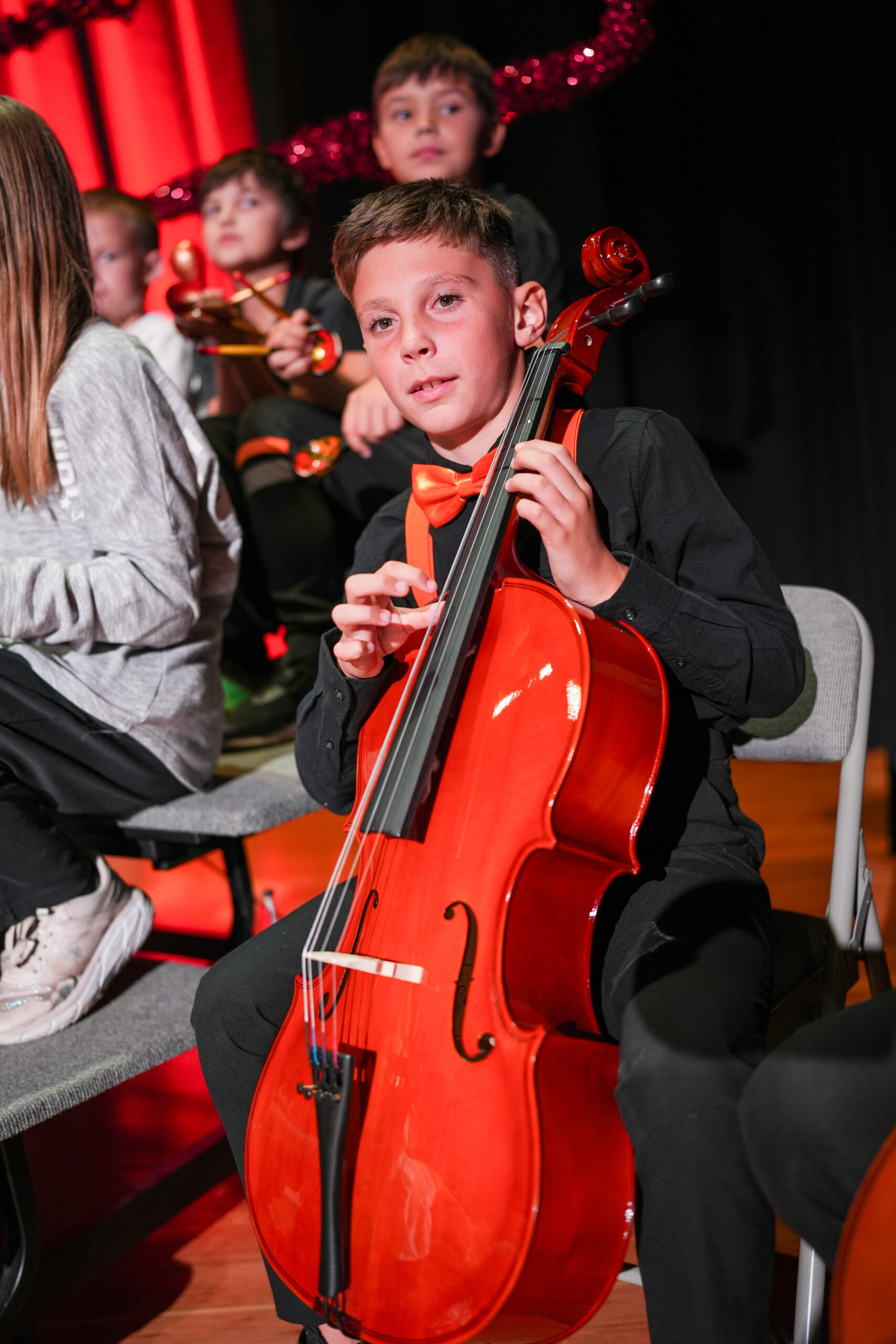Music Education After-School Program


Program Vision and Components
- Instrumental Training: Children learn to play instruments such as piano, guitar, violin, and percussion, tailored to their interests and skill levels.
- Vocal Skills: Group and individual vocal coaching helps children develop singing techniques, pitch accuracy, and expressive performance.
- Music Theory: Foundational lessons in rhythm, harmony, and notation empower children to understand and create music.
- Performance Opportunities: Through recitals and community concerts, children showcase their talents, building self-esteem, confidence, and a sense of accomplishment.
To support this vision, we provide free professional development for teachers, offering training in music theory, pedagogy, and diverse instruments. This ensures our educators are equipped to inspire and guide students effectively. With donor funding, we supply instruments, teaching materials, and performance venues, removing barriers to participation.
Benefits of Music Learning in Child Development
Music education profoundly impacts children at various developmental stages, fostering holistic growth:
- Early Childhood (Ages 3–7): Music enhances cognitive and motor development. Rhythm activities improve coordination and pattern recognition, supporting early math and language skills. Singing and movement build emotional expression and social bonds, as children learn to share and collaborate in group settings. These experiences lay a foundation for self-regulation and creativity.
- Middle Childhood (Ages 8–12): Learning instruments or vocal techniques sharpens focus, discipline, and problem-solving. Music theory strengthens memory and analytical skills, boosting academic performance, particularly in reading and math. Group rehearsals foster teamwork and empathy, while recitals build confidence and resilience, helping children navigate social dynamics and self-assurance during formative years.
- Adolescence (Ages 13–18): Music becomes a powerful tool for emotional regulation and identity formation. Teens express complex feelings through performance, reducing stress and enhancing emotional intelligence. Advanced music training refines executive functions like planning and multitasking, preparing them for future challenges. Public performances reinforce self-esteem and leadership, while faith-based music deepens spiritual reflection and community connection.
Impact and Call to Support
Through this program, children not only gain musical proficiency but also experience God’s love through creative expression and supportive relationships. Performances at concerts and recitals celebrate their growth, uniting families and showcasing the transformative power of faith in action. By funding instruments, teacher training, and program operations, donors and sponsors become partners in cultivating a generation of confident, compassionate, and spiritually grounded young people.
